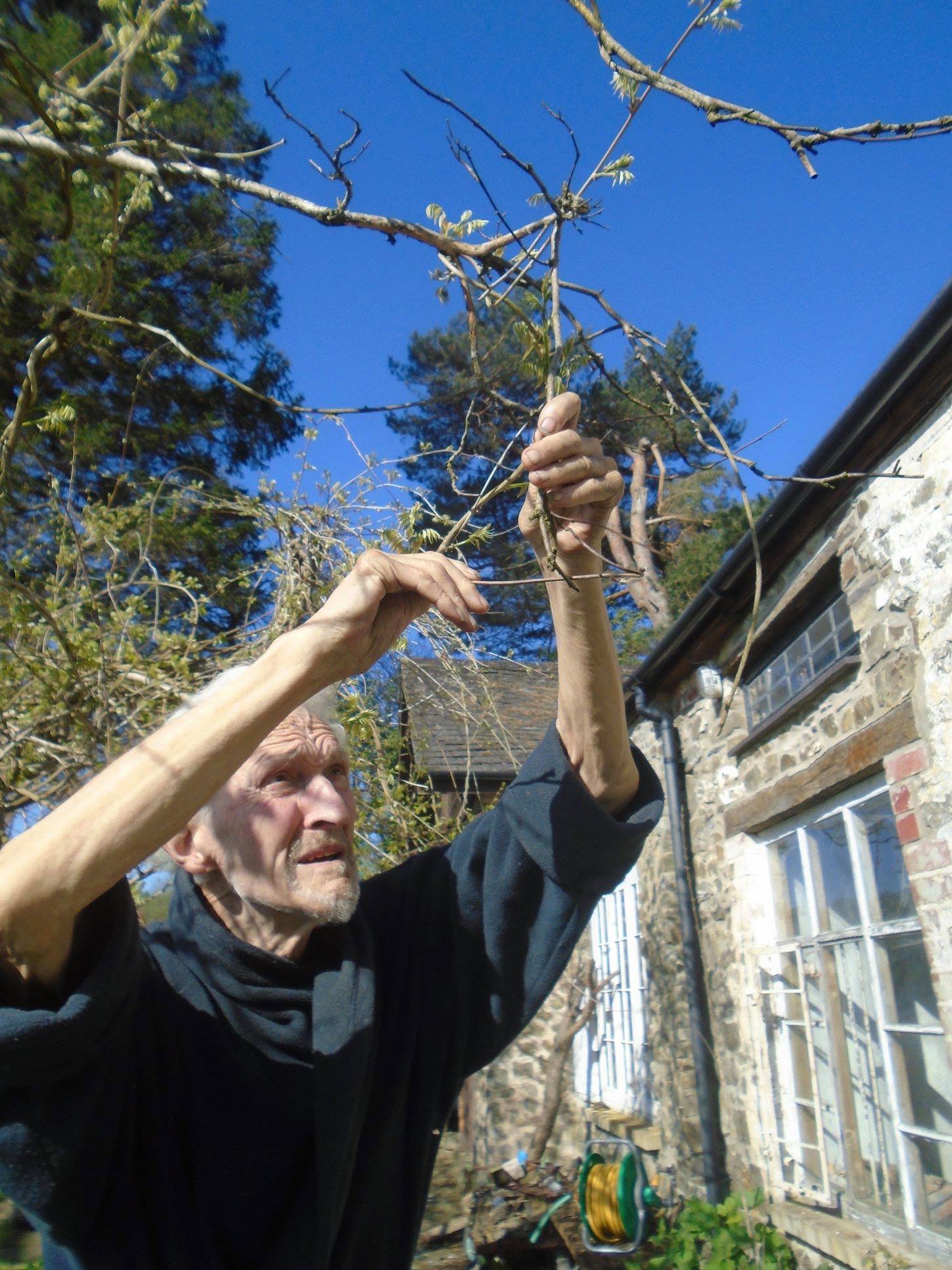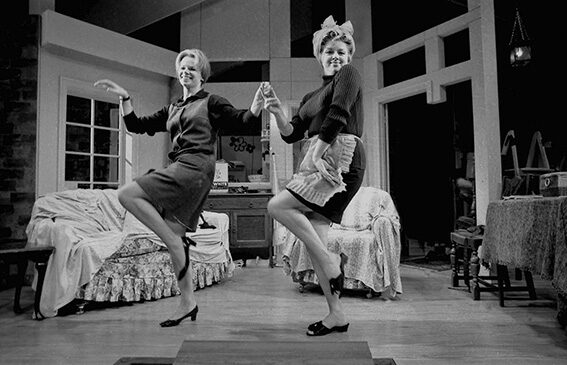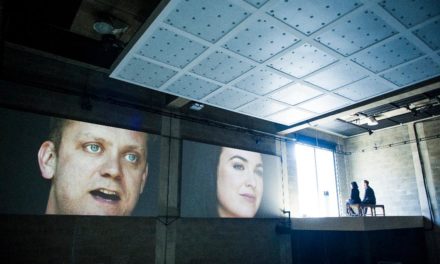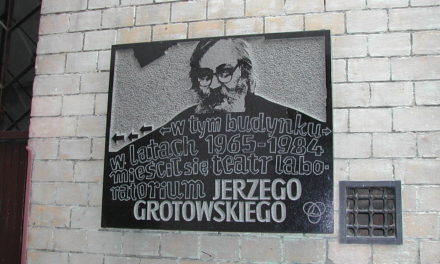Donald Howarth, who has died in London aged 88, was one of the celebrated generation of playwrights whose work was first shown at London’s Royal Court Theatre in the 1950s. He enjoyed national and international acclaim via the West End stage and on British television. Less well known are the years he spent in South Africa, providing important work in fringe theatres that defied the color bar. His death marks the end of a key chapter in theatre history.
Donald Alfred Howarth was born in Woolwich on 5th November 1931. His father Arthur was a regular soldier and his mother Phoebe (nee Worsdell) had begun her working life in service. After an acrimonious break-up when Howarth was two, he and his elder brother John were brought up in a series of foster homes. At the age of 17, he traveled by train to London, walked to a flat in Earl’s Court, and rang the bell. His mother, now a successful dressmaker, opened the door, took one look at him and said: “Hello Donald”. They remained close for the rest of her life. Leaving school, and after a short period of apprenticeship to a sign-writer, he secured a place at Esme Church’s Northern Drama School in Bradford, where his fellow pupils included Robert Stephens and Tom Bell. Upon completion of his acting training, and on Church’s advice, he remained at the school to further train as a director.
Howarth spent some years as an actor in repertory. Later, when working and studying in Manchester, he was inspired by a touring production of John Osborne’s Look Back in Anger (1956). It was another two years before he was to write his own play, which he achieved in two weeks. Howarth sent the resulting script to the Royal Court Theatre, where two early friends from his Bradford youth drama days, William (Bill) Gaskill and Tony Richardson, were already working. The play, originally titled “Lady on the Barometer”, was given a Sunday night performance, renamed Sugar in the Morning (1958). It then enjoyed a successful run on the Court’s main stage. A television adaptation followed in which, to Howarth’s dismay, a black character was replaced by a white character, somewhat negating the thrust of the play.
The Royal Court’s Artistic Director George Devine immediately commissioned a second stage-play, which took Howarth eleven months to write. However, upon completion, Devine turned it down. The work, All Good Children (1959), an Ibsenesque drama based on the parable of the talents, was produced at Bromley Little Theatre, directed by Vladek Shebal, in 1959. It was revived (directed by Howarth) at Hampstead Theatre five years later.
His next play, A Lily in Little India (1965) was also directed by Howarth and staged at Hampstead Theatre, transferring to St. Martin’s Theatre in the West End in 1966. It starred Ian McKellan, in his first West End lead. Howarth returned to the Court with OGODIVELEFTTHEGASON (1967). Again at the Court, in 1970, his play Three Months Gone saw great success and once more provided a transfer to St Martin’s Theatre. Howarth had met with resistance from Court management over his casting of Diana Dors, but it proved to be an inspired decision and revived Dors’ career.
In the early 1970s, Howarth left London and traveled to apartheid South Africa, believing that the racist system was best attacked from within, and not by international boycott. Soon after his arrival, Howarth wrote and directed the subversive Othello Slegs Blankes (Othello Whites Only) (1972), which ran at the newly founded Space Theatre in Cape Town. Three more Howarth plays were later produced at the venue: School Play (1969), Enemy: A Anti War Collage (1972) and Scarborough (1972) written on the journey from England and later revived on British television. He also had work staged in Johannesburg, including the satirical Yin Yang Cinders (1973), which he revived at the St Clements Theatre in New York City later that year under the title “The Greatest Fairy Story Ever Told”.
His work with ethnically diverse actors in South Africa inspired him to undertake the important next phase of his career: introducing the work of black actors and playwrights to the London stage. In 1974, he returned to London to direct Mustapha Matura’s Play Mas (1974) at the Court. Appointed that theatre’s Literary Manager the following year, he managed to persuade the Court to stage the Nigerian writer Yemi Ajibade’s Parcel Post (1976) and another Matura play, Rum an’ Coca Cola (1976), which he later revived in New York. Howarth continued to visit South Africa throughout the 1970s. In 1980, he staged a ground-breaking production of Waiting for Godot (1953) at the Baxter Theatre in Cape Town, starring the well-known black South African actors Winston Ntshona and John Kani. This production transferred to London’s Old Vic Theatre and toured internationally, to great acclaim.
At the beginning of the 1980s, Howarth essentially retired from theatre work. His long-time companion, later civil partner, the American sociologist George Goetschius, had developed severe health problems. They retreated to their cottage in mid-Wales where the demands of being a full-time carer resulted in a long hiatus from writing.
Returning to London at the start of the 1990s, he formed a close friendship with the teacher and theatre researcher John Hodgson (1921-1997), who had made a lifetime study of the life and work of the Austro-Hungarian movement teacher and theorist Rudolf Laban. Following Hodgson’s death in 1997, he persuaded the Brotherton Library at Leeds University to accept his archive. Howarth set up the John Hodgson Theatre Research Trust which continues to award grants to projects or individuals engaged in practical theatre research.

Donald Howarth (1931-2020), playwright and director, in his beloved garden, Tyn-y-Pant, Powys, Wales.
In the 1990s, Howarth joined the selection committee for the George Devine Award, an annual prize for the year’s most promising playwright, which he himself had shared with John Antrobus in 1970. He later became a trustee of the award and remained on the selection committee until just before his death. Howarth’s most recent project, started after the death of Goetschius in 2006, was the founding of a charitable trust: The George Goetschius & Donald Howarth Society of Friends Awards (G&D SOFAs). This charity was established to “provide support and facilities for the understanding, appreciation, and development of the arts and social studies, to include, but not be limited to visual art, photographic, performative, literary, dramatic writing, and the study of social change and cultural history relating to homosexuality” (or, as Howarth preferred, the non-heterosexual).
In his later years, Howarth continued to attend theatre regularly, particularly new writing at the Royal Court. He was a keen supporter of The Finborough Theatre, facilitating sponsorship for the Finborough Writers’ Forum from his G&D SOFAs charity. Howarth was also an active and popular attendee of the same monthly event. Additionally, he was an enthusiastic participant in the four annual Dramatists’ Club lunches at the Garrick Club, where he was “much liked for his acid wit, his memories, and his refreshing skepticism about theatrical pieties”, according to his fellow member Nicholas Wright. Although he lived alone at 9 Lower Mall after Goetschius’ death in 2006, he was regularly visited by a loyal group of close friends both young and old, many of whom rallied around during his final weeks. Following a short but brave battle with cancer, Howarth died at his home in Hammersmith with his close friend Mike Chambers by his bedside. He was much loved and will be greatly missed by his many friends, his colleagues and by the larger theatre community of which he was such an important player.
Donald Alfred Howarth, playwright, and director. Born Woolwich 5th November, 1931, died Hammersmith 24th March, 2020.
This post was written by the author in their personal capacity.The opinions expressed in this article are the author’s own and do not reflect the view of The Theatre Times, their staff or collaborators.
This post was written by Harriet Devine.
The views expressed here belong to the author and do not necessarily reflect our views and opinions.


















